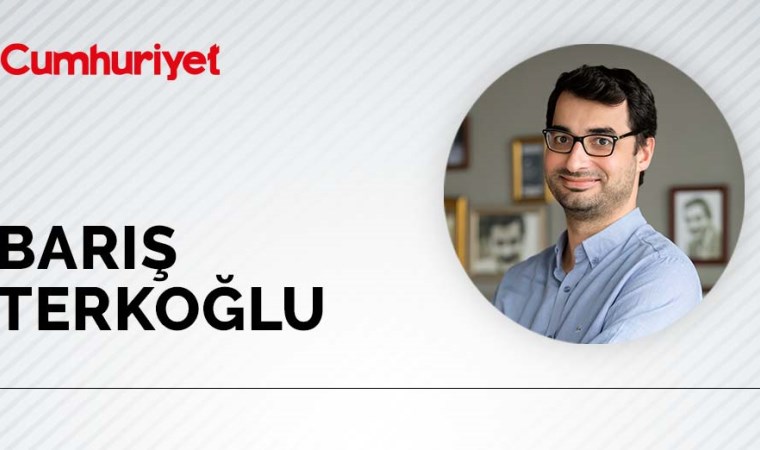FETO and PKK self-criticism from Berlin
German Ambassador Martin Erdmann stated they were engaging in “self-criticism”, saying that Germany had for many years failed to understand the extent of the threat that the PKK posed for Turkey and had had difficulty comprehending the 15 July coup attempt and the Gülen movement’s activities.

 Efforts are intensifying to strengthen dialogue on the Berlin-Ankara axis. Germany is signalling a revision of its policy faced with Turkey’s sensitivities on the matters of the PKK and FETO.
Efforts are intensifying to strengthen dialogue on the Berlin-Ankara axis. Germany is signalling a revision of its policy faced with Turkey’s sensitivities on the matters of the PKK and FETO.
In the courtesy visit he made to our paper yesterday, German Ambassador Martin Erdmann stressed that a period had been entered in which Germany was following a more constructive policy in relations with Ankara marked by heightened tension. There are problematic issues between the European Union’s locomotive country Germany and Turkey such as EU-Turkey relations, the PKK and DHKP-C’s activities in Germany and German citizens held in detention in Turkey. Erdmann stated they were engaging in “self-criticism”, saying that Germany had for many years failed to understand the extent of the threat that the PKK posed for Turkey and had had difficulty comprehending the 15 July coup attempt and the Gülen movement’s activities. The Ambassador, saying, “Our reaction has been very weak to the threats that Turkey has faced,” pointed out that the doors to dialogue between the two countries had recently become more open.
One can obviously but conjecture what lies behind the mutual efforts to re-establish channels of dialogue on the Berlin-Ankara axis that has of late been filled with high tension, but the first thing that comes to mind is that, as came to public view at the EU’s leaders’ summit in Varna, Germany has decided once more to try out a policy of focusing on potential areas of agreement rather than problems in the crisis-mired relations. Of course, this stance has also become more starkly pronounced with Merkel having taken over at the helm once more following the lengthy coalition negotiations that accompanied the elections in Germany. Berlin’s harsh pronouncements on the serious erosion with regard to human rights, democracy, freedom of the press and expression and supremacy of the law are no secret.
Dirty deal
On the other hand, weighing fairly heavily on the Merkel front are the considerations of not fully closing the doors on Ankara and avoiding Ankara binning the agreement taunted as being a “dirty deal” aimed at stemming the flow of migrants to Europe. Merkel needs the dialogue between the EU and Turkey to be kept going because talk of the EU and Turkey being mutually interdependent remains fresh in the memory. Another point that must be kept in mind is that Merkel-steered Berlin is the government that is currently pivotal in brokering the notion of Turkey having “privileged partnership” rather than “full membership” in relation to the EU. That is, we were already aware of where Berlin stood on Turkey concerning the EU. On the other hand, Berlin is endeavouring to prevent the tension arising out of mutual confrontation with Turkey from spilling over into the community with Turkish roots living in Germany. In one sense, it is inclined not to let foreign policy harm the country’s stability.
A step expected
In fact, the EU is striving to reinvigorate dialogue with Ankara in a period in which relations with the US are heavily laden with political and economic problems, “Cold War” winds are being fanned up between the West and Russia and each day brings new developments in the field as the “proxy wars” unfold in Syria.
One of Ankara’s offences in the interest of keeping the channels of dialogue open chiefly on the axis with the EU and its powerful Germany-France dynamic was the Berlin visit last February when Prime-Minister Binali Yıldırım came together with Merkel. Yıldırım conveyed the message at his meetings that they were expecting a step from Germany to counter the PKK and FETO. Previously, Foreign Minister Çavuşoğlu had met his German counterpart at the time, Gabriel, and the message emanating from the parties was that differences of opinion and difficulties continued, but there was a shared desire for dialogue and cooperation to solve them. The impression given was of the crisis being downplayed to a degree.
Diffusing strife
The releasing in controversial dealings of certain German citizens who were in detention in Turkey has also heightened speculation that relations lie in the background. Turkey’s demand that Germany extradite individuals accused of FETO and PKK membership is no secret. Nor is Berlin’s coolness towards these demands from Ankara. Berlin, known for its comprehensible and rational policies, is endeavouring, just as in its relations with Moscow, to diffuse the mutual strife with Ankara even if to an extent without wishing to concede too much.
Almanya Büyükelçisi Martin Erdmann: Türkiye’nin karşılaştığı tehditlere tepkimiz çok zayıf oldu

En Çok Okunan Haberler
-
 Dönmek isteyen gençler için şartını açıkladı
Dönmek isteyen gençler için şartını açıkladı
-
 Devrim Muhafızları'ndan Suriye çıkışı
Devrim Muhafızları'ndan Suriye çıkışı
-
 ‘Kartlar bloke edilebilir’ uyarısı!
‘Kartlar bloke edilebilir’ uyarısı!
-
 Bir acayip Türkiye hikâyesi
Bir acayip Türkiye hikâyesi
-
 CHP'nin ilçe başkanından açıklama!
CHP'nin ilçe başkanından açıklama!
-
 Jose Mourinho'dan genç futbolcuya övgü!
Jose Mourinho'dan genç futbolcuya övgü!
-
 Üniversite öğrencisi, trafikte öldürüldü
Üniversite öğrencisi, trafikte öldürüldü
-
 Kılıçdaroğlu'ndan Özel'e 'Suriye' yanıtı
Kılıçdaroğlu'ndan Özel'e 'Suriye' yanıtı
-
 Başkan Özarslan’dan açıklama
Başkan Özarslan’dan açıklama
-
 Bu kebapçılara dikkat!
Bu kebapçılara dikkat!